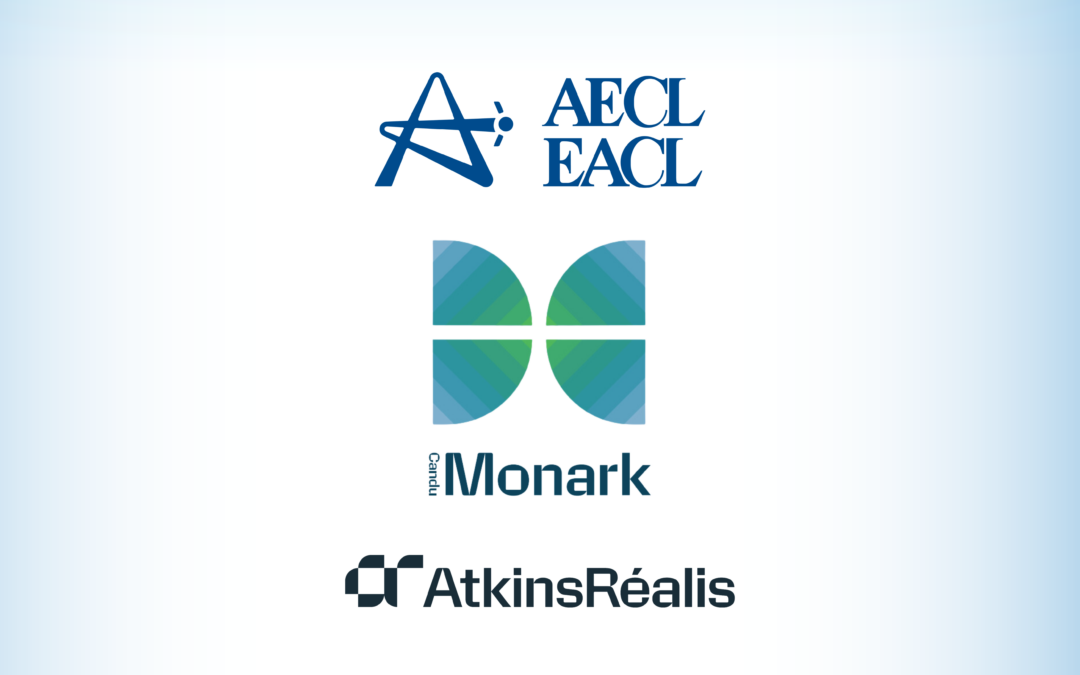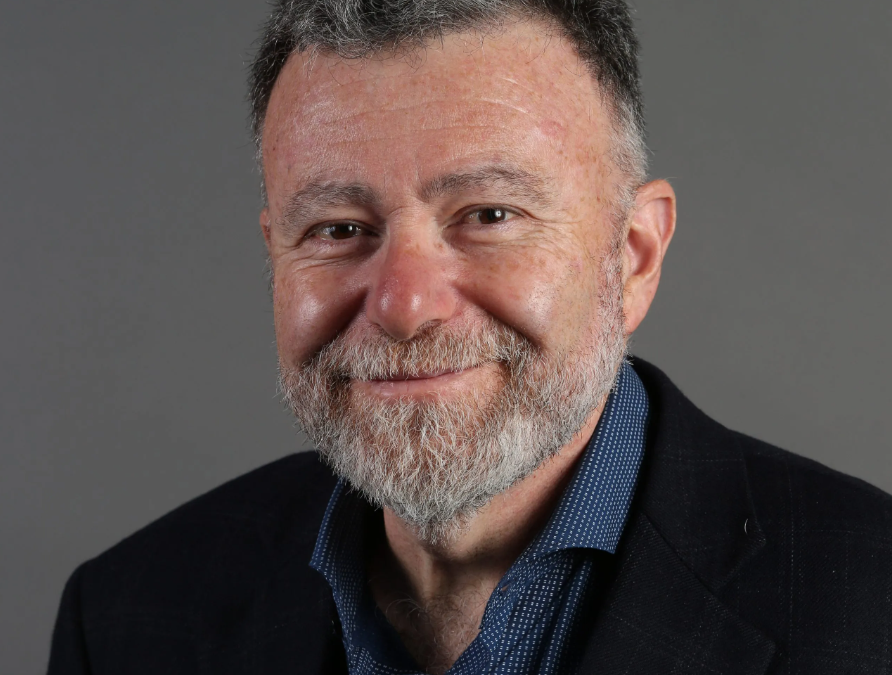
AECL and AtkinsRéalis enter into Memorandum of Understanding to collaborate and expand intellectual property agreement, accelerating development of CANDU® MONARK™ reactor
Montreal: February 22, 2024 – Atomic Energy of Canada Limited (“AECL”), a federal Crown corporation, and AtkinsRéalis [SNC-Lavalin Group Inc.] (TSX: ATRL), are pleased to announce they have entered into a MOU to collaborate for the purpose of successfully deploying CANDU® reactors in Canada and internationally and to expand their intellectual property licensing agreement (IPLA) given the importance of CANDU® technology’s role in helping Canada reach its net zero objectives.
The collaboration and licensing agreement to follow this MOU will accelerate the development of CANDU reactor technology, including the previously announced CANDU MONARK™ reactor, at a critical time during the energy transition. When the IPLA was initially signed in 2011, transitioning to a low-carbon world was not a consideration; as expanded, the agreement will reflect the changing priorities and the organizations’ belief in the role that CANDU technology will play in decarbonizing Canada and the world.
“I would like to extend my appreciation to AECL for their ongoing collaboration. The MOU underscores our mutual interest in advancing the CANDU technology suite of reactors,” commented Ian L. Edwards, President and Chief Executive Officer, AtkinsRéalis. “We’re committed to continuing the work we’ve undertaken for over a decade— successfully refurbishing, servicing, and developing CANDU technology in Canada and abroad to meet the growing low-carbon energy needs here and abroad—while enabling Canada to maintain its status as a Tier-1 nuclear nation.”
“While not a silver bullet, nuclear energy is part of a suite of non-emitting technologies that are required for the world to make the transition to a net-zero future. Made-in-Canada CANDU technology is a national and strategic asset that has provided reliable, non-emitting power and high-quality jobs to communities across Canada for decades,” said the Honourable Jonathan Wilkinson, Minister of Energy and Natural Resources. “As the world moves to build a more prosperous and sustainable economy, we must use every tool in the toolbox to achieve our clean growth goals, reduce emissions and mitigate climate change. Canada’s expertise will ensure that we remain a safe and reliable partner for the peaceful use of nuclear energy throughout the global energy transition while also supporting significant economic opportunities for workers.”
“I am pleased that AECL and AtkinsRéalis are collaborating and working together to advance CANDU reactor technology; particularly one that recognizes the tremendous opportunity and need for CANDU to uniquely contribute to important national objectives such as decarbonization, energy security, economic growth and maintaining Canada’s Tier-1 nuclear nation status,” said Fred Dermarkar, President & Chief Executive Officer of AECL. “We believe this path can position CANDU reactor technology, developed in Canada by Canadians, to remain a viable reactor product offering at home and abroad.”
As the vast majority of CANDU components, fuel and services are sourced domestically and more than 85 per cent of a CANDU reactor’s equipment and parts can be supplied by Canadian manufacturers, this offers compounded economic benefits to stakeholders across the country. In fact, as the Original Equipment Manufacturer and proud steward of CANDU technology, AtkinsRéalis partners with a nationwide nuclear supply chain of more than 250 companies that employ 76,000 people and provides CANDU fuel, components, services and tooling.
“We will collaborate with AECL, the Canadian nuclear supply chain partners and our customers to complete the CANDU MONARK design for domestic and international deployment,” said Joe St. Julian, President, Nuclear, AtkinsRéalis. “CANDU technology is the only home-grown Canadian power reactor technology; it competes on a global stage, providing energy security, creating export opportunities and thousands of well-paying, highly skilled jobs, while also supporting the local supply chain and creating economic value to Canada. The deployment of the CANDU MONARK will provide safe, carbon free, base load power to the country and the world.”
About Atomic Energy of Canada Limited
Atomic Energy of Canada Limited (AECL) is a federal Crown corporation with a mandate to drive nuclear opportunities for Canada. Working through a government-owned / contractor-operated (GoCo) model that is executed by its contractor, Canadian Nuclear Laboratories, AECL enables nuclear science and technology through its Chalk River Laboratories, Canada’s largest research complex, and by engaging with academia and private industry to advance nuclear innovation. It is committed to advancing reconciliation with Indigenous peoples. It also manages the Government of Canada’s radioactive waste responsibilities. AECL continues to own the intellectual property for the CANDU® reactor technology and is accountable for deriving optimal benefit from this technology for Canada. Read more on AECL at www.aecl.ca.
About AtkinsRéalis
Created by the integration of long-standing organizations dating back to 1911, AtkinsRéalis is a world-leading professional services and project management company dedicated to engineering a better future for our planet and its people. We create sustainable solutions that connect people, data and technology to transform the world’s infrastructure and energy systems. We deploy global capabilities locally to our clients and deliver unique end-to-end services across the whole life cycle of an asset including consulting, advisory & environmental services, intelligent networks & cybersecurity, design & engineering, procurement, project & construction management, operations & maintenance, decommissioning and capital. The breadth and depth of our capabilities are delivered to clients in key strategic sectors such as Engineering Services, Nuclear, Operations & Maintenance and Capital. News and information are available at www.atkinsrealis.com or follow us on LinkedIn.
About AtkinsRéalis’ Nuclear Business
AtkinsRéalis has over 70 years’ of global nuclear expertise, delivering nuclear technology products and full-service solutions to nuclear utilities around the world. AtkinsRéalis is the steward of CANDU® nuclear technology, operating on four continents, and provides advisory and engineering services to other nuclear developers. With an innovative technology portfolio, including access to over 500 patented solutions, AtkinsRéalis solves technically complex challenges across the whole nuclear lifecycle from design and new build through asset management and from life extension and late life management through decommissioning and waste management. AtkinsRéalis operates and manages government nuclear research sites, transforming ageing infrastructure and safely managing legacy nuclear waste. AtkinsRéalis is also involved in developing medical radioisotopes for cancer research through its partnership with TerraPower. Read more on our Nuclear market page.
For more information:
Media
Jeremy Latta
Director, Communications and Government Reporting
communications@aecl.ca

